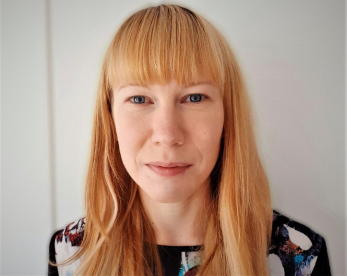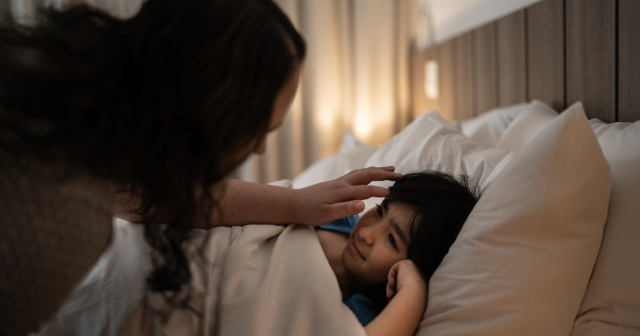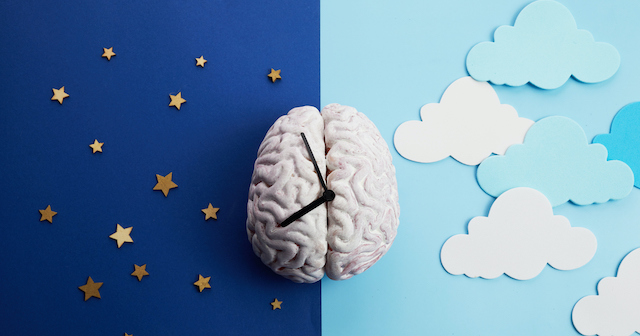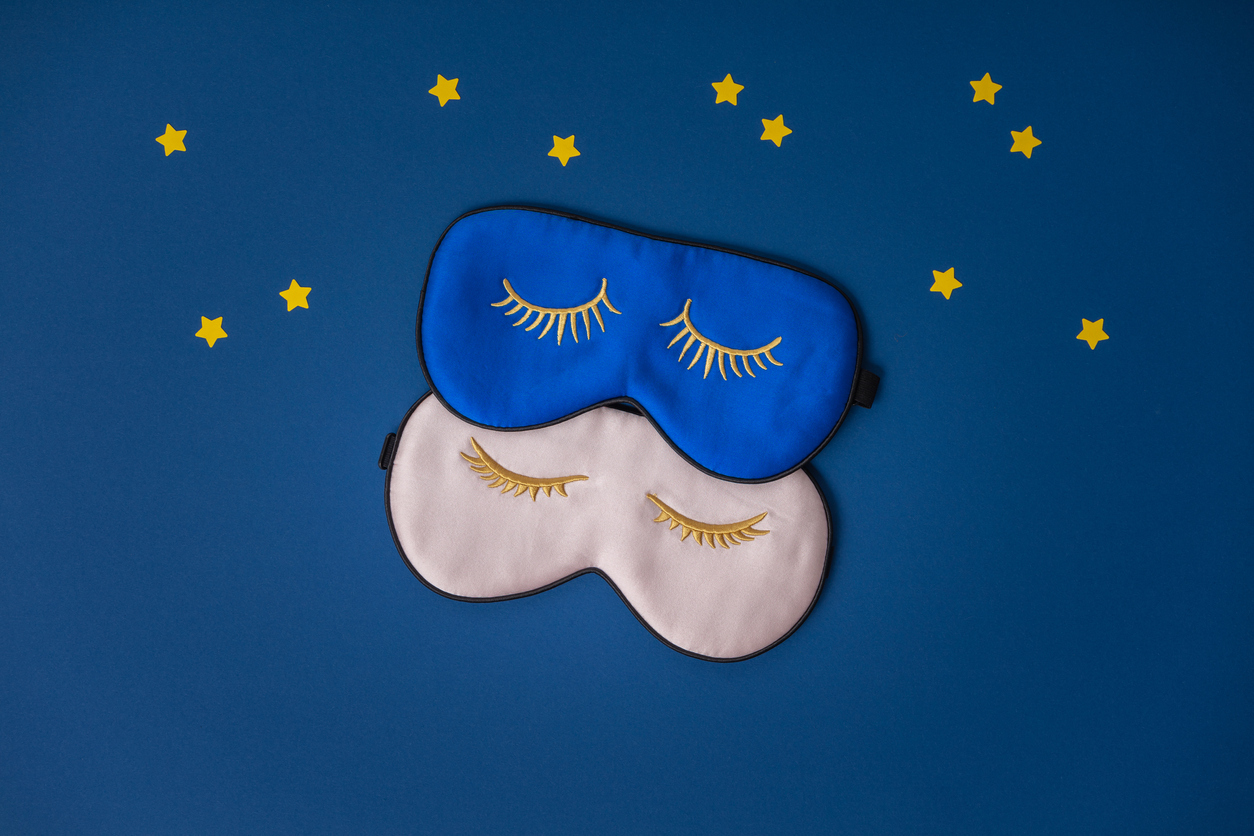Who doesn’t feel tired sometimes? From a bad night’s sleep to stress, there are lots of reasons why it’s common to lack energy. But if you sleep well at night and still always feel very sleepy, and you can’t get through your day without napping or falling asleep – even while you’re talking or eating – you may have what’s known as hypersomnia.
Sometimes called hypersomnolence or excessive daytime sleepiness, hypersomnia can be very worrying and frustrating, and it may have an affect on your work, home or social life. This level of sleepiness needs sorting out – so don’t just write it off because so many people talk about feeling tired all the time.
The good news is that hypersomnia can be managed and treated, either by making lifestyle changes or, in some cases, taking medication. So here’s what you need to know about what it is and what you can do about it.
What is hypersomnia and who gets it?
Hypersomnia that isn’t caused by another health condition or medication is thought to be rare and probably affects less than 1% of people, although the exact figure is unknown.
It’s often a symptom, rather than a condition in itself. Estimates vary, but research suggests somewhere between 4% and 25% of people may be affected at some point. It can be caused by:
- a sleep disorder
- another health condition
- certain medications
- lifestyle
In some cases, however, it’s diagnosed as ‘idiopathic hypersomnia’ – meaning there’s no known explanation for why it happens.
Symptoms: what does hypersomnia feel like?
Hypersomnia makes it difficult for you to stay awake during the day and you may fall asleep at any time – even when you’re in the middle of talking or eating. It can happen many times throughout the day, and without you meaning to fall asleep.
To be diagnosed with hypersomnia, this usually needs to have been happening on most days for at least 3 months.
If you have hypersomnia, you may:
- need to nap often – but not feel refreshed or restored afterwards
- fall asleep anywhere – while eating, working, driving or talking
- still sleep for a long time at night – often more than the normal range (such as 10+ hours)
- find it hard to wake up (even with alarm clocks) and feel confused and groggy after getting up – known as ‘sleep drunkenness’
You may also develop some of the following symptoms:
- low energy
- headaches
- loss of appetite
- feeling restless, irritable or agitated
- thinking or speaking slowly
- trouble concentrating or remembering things
- hallucinations
- mental health problems, such as anxiety, depression or psychosis
If you sometimes feel very sleepy, try not to worry. Remember that daytime sleepiness is often due to another condition that can be treated – it’s rare to get hypersomnia that isn’t caused by something else.
It’s unlikely that you have hypersomnia if you:
- only sleep a lot at the weekend if you’ve had a very tiring week or a big night out
- wake up from sleep feeling rested and restored
- don’t feel a desperate need to nap during the day
- don’t struggle to stay awake in the middle of the day
It’s important to remember that hypersomnia is different from just feeling tired all the time.
If you’re worried about your symptoms and you aren’t sure if you need to see a doctor, try our Smart Symptom Checker to help you work out what to do next.

What causes hypersomnia?
Hypersomnia has a number of possible causes, and sometimes several conditions or factors may be involved. The main causes include:
- obstructive sleep apnoea – this sleep disorder can cause you to momentarily stop breathing in your sleep, resulting in loud snoring, gasping or snorting, which affects the quality of your sleep
- restless legs syndrome – this is a condition where you have an overwhelming urge to move your legs. It’s usually worse at night, so it can affect how well you sleep
- insomnia – this is when you can’t get refreshing sleep at night, which can lead to chronic sleep deprivation and excessive sleepiness during the day. There isn’t always an obvious cause of insomnia, but it can be triggered by various things (read about causes of insomnia)
- narcolepsy – this brain condition causes you to suddenly fall asleep, whatever you’re doing, and excessive daytime sleepiness is common
- depression – although key symptoms of depression include low mood and finding it more difficult to be interested in or enjoy life, it often also causes sleep problems and tiredness. Other mental health conditions, such as anxiety and bipolar disorder, can also be linked to sleep problems that may lead to hypersomnia
- certain medications – some antihistamines, sedatives and sleeping pills can cause you to feel very sleepy in the daytime. This can also be a withdrawal symptom after you’ve stopped taking medication
- drug and alcohol misuse – this can cause hypersomnia, as can withdrawal from stimulant drugs
- lifestyle – if you do night-shift work or have a unusual sleeping routine, for example, this can lead to being very sleepy in the day
What can you do to treat hypersomnia?
How hypersomnia is managed and treated will depend on what’s causing it and how severe it is.
If your symptoms are severe, it’s important to do something about it as soon as possible, as it may lead to accidents (such as falling asleep while driving) if left untreated. So always see your doctor if you’re concerned. But if it’s mild, in some cases there are things you can try yourself to help improve your symptoms.
Self-care measures for daytime sleepiness include:
- improving your sleep habits – try regulating your night-time and day-time sleep routine first. Top tips include going to bed and waking up at the same times each day, relaxing before bedtime, and making sure your bedroom is a good environment for sleeping. Read more about how to improve your sleep hygiene and get better sleep
- avoiding smoking (and tobacco generally) – nicotine is a stimulant, so it can cause you to stay awake for longer if used too close to bedtime
- not drinking caffeine and alcohol – caffeine is also a stimulant, so it’s best not to consume any during the few hours before bedtime (this means skipping coffee, tea, cola and chocolate). Alcohol is also best avoided before bed, as it can cause you to wake up while it’s being processed by your body, and can lead to sleep that’s disturbed by dreams or night sweats. Try caffeine-free and non-alcoholic alternatives instead
- avoiding medicines that can cause drowsiness – certain types of medicine are known to cause hypersomnia in some people, including some antihistamines, sleeping pills and tranquilisers. However, you should speak to your doctor before stopping any medication you’re taking
- not working late into the night – try to avoid working at night or too close to bedtime. It’s also a good idea not to do any social activities that might push back your bedtime, causing you to be tired the next day
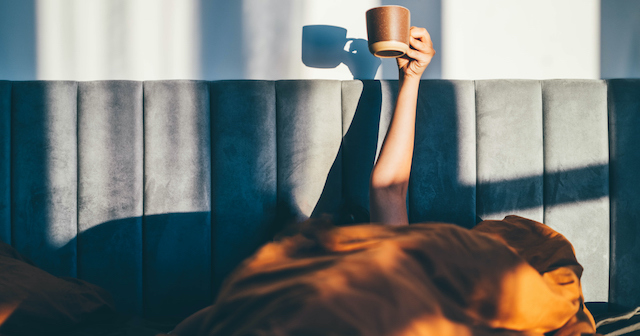
When to see a doctor
You should see a doctor about hypersomnia if:
- you regularly fall asleep during the day
- excessive sleepiness is affecting your daily life
- you snore very loudly or wake up gasping in the night – these are symptoms of sleep apnoea, 1 of the main causes of hypersomnia
If you’re worried about any symptoms but aren’t sure if you need to see a doctor, try our Smart Symptom Checker. This can help you decide whether seeing a doctor is the next best step, or if you can try self-care measures first.
How is hypersomnia diagnosed?
To help work out what’s causing your excessive sleepiness, your doctor will ask about your symptoms, medical and family history, as well as any medication you’re taking.
They might ask you to keep a sleep diary that keeps track of your sleeping and waking times, which can help them spot any patterns. You can track your sleep using the Healthily self-care app, which is free to download.
Your doctor may also get you to complete a sleep questionnaire, to help assess how severe your daytime sleepiness is. A common questionnaire is the Epworth sleepiness scale, which asks how likely you are to fall asleep in different situations.
Depending on your symptoms, you may also be referred to a doctor who specialises in sleep disorders, usually at a sleep disorders clinic, for assessment and treatment. They may do tests such as:
- polysomnography – this is a test where your stages of sleep are measured overnight in hospital or another healthcare setting. It looks at your breathing, brain waves, muscles movements and heart rhythms during sleep to help diagnose sleeping disorders and causes of hypersomnia
- multiple sleep latency test – this is a sleep test done during the day, which assesses how likely you are to fall asleep during several 20-minute ‘nap trials’. It measures the activity in your brain, which can help detect sleep issues
How can a doctor help
What treatment is recommended will depend on what’s causing your hypersomnia. But treatments that can be used for hypersomnia include:
- medication to make you feel more awake – stimulant medicines licensed to treat narcolepsy are generally the first recommended treatment for hypersomnia. They’ll usually only be prescribed by a sleep specialist, who may prescribe modafinil or pitolisant. If these aren’t available or don’t work for you, you may be offered solriamfetol, dexamfetamine or methylphenidate
- continuous positive airway pressure (CPAP) – usually used for obstructive sleep apnoea, this treatment helps keep your airways open while you’re asleep. You wear a mask attached to a small pump, which delivers a constant supply of air to stop your throat closing (read more about treatment for sleep apnoea)
- antidepressants – these may be prescribed if you also have depression and this is interfering with your sleep
Doctor’s tip
By Dr Adiele Hoffman, Healthily Clinical Content Reviewer
“If it’s trouble sleeping at night that’s causing you to feel very sleepy during the day, it’s vital to focus on treating insomnia. Your doctor may be able to refer you for a 6-week online course, with a team of sleep experts offering you advice.”


